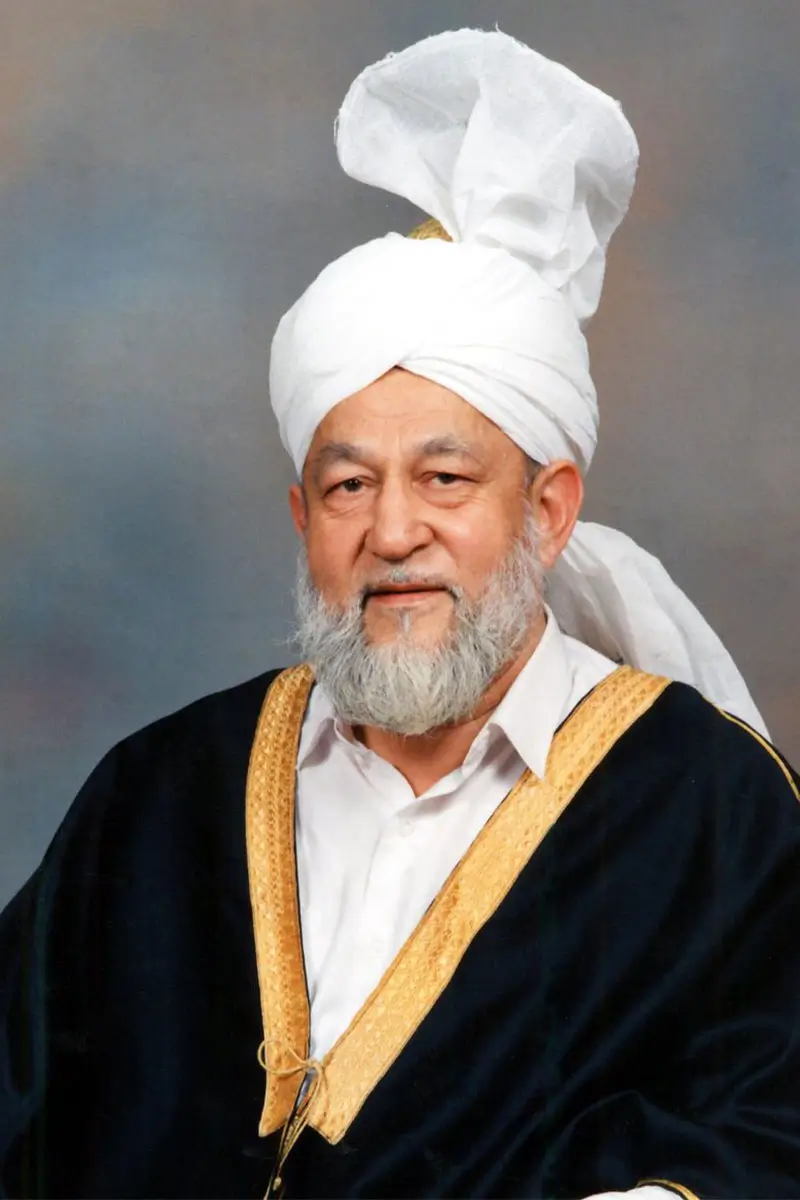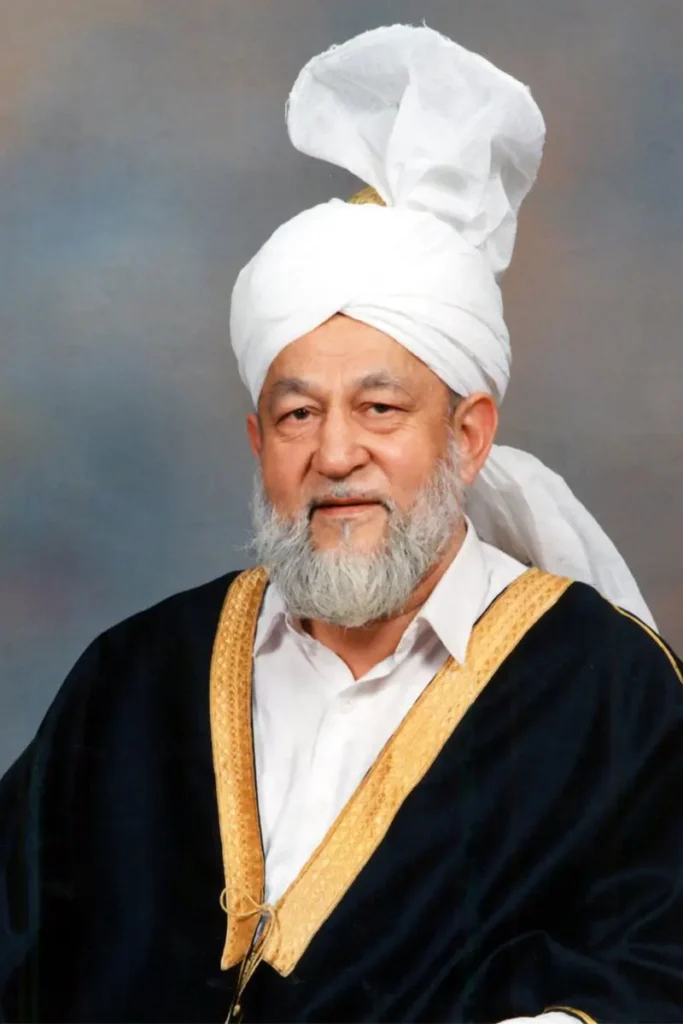Questioner: Huzoor, in Namaz we say, As-Salamu Alaika Aya Nabiya, which translates as Peace Be on You, O Prophet. Now we know, because we are following Sunnah, that the Holy Prophet (SAW) also said this. In what respect was he saying, Peace Be on You?
Huzoor (rh): Do you ever visit a graveyard? Don’t you say, As-Salamu Alaikum Ya Aal-Al-Qaboor? Do you say that?
Questioner: Yes.
Huzoor (rh): What does it mean?
Questioner: Peace Beyond You, O Dwellers.
Huzoor (rh): On you, the dead people? If that does not stand in the way of your belief and idolatry, then why should that prayer to Muhammad (SAW) by addressing him stand in the way of your belief and idolatry? Sometimes you invoke prayer by addressing people, sometimes in absentia. It’s only a manner of speech. The more close you feel, the more warmed up in love you feel, you psychologically tend to address the person instead of invoking blessing upon him in third person. You feel agitated enough to say it directly. That is the philosophy of sending your Salams to the buried people in graves by addressing them, Ya Aal-Al-Qaboor, when you visit them, when you are close to them. When you are away from them, you never say that. You never say, As-Salamu Alaikum Ya Aal-Al-Qaboor. You say, O Allah, bless them who are dead, who are buried. So it’s only an issue of your feeling, how you feel close. In the Holy Qur’an, where it is mentioned, the whole subject is built, the Namaz which Muhammad (SAW) taught you, reaches about its conclusion. And that is the time when you really feel the nearness to Muhammad (SAW). So if the graves justifiably earn the direct address, why not Hazrat Muhammad (SAW), who at least in his beneficence is still alive? Right?








